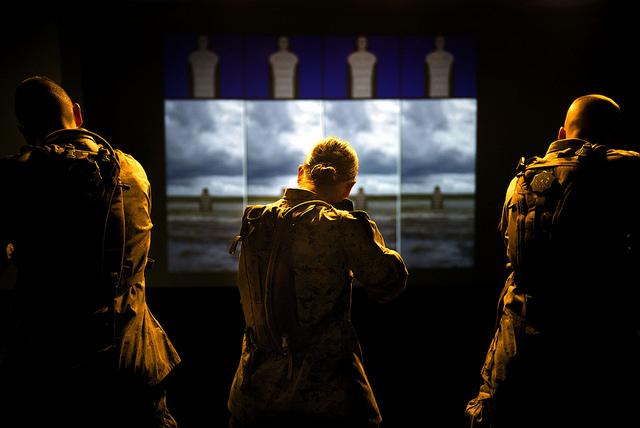
Headlining today is Mullah Omar’s death in 2013—what does it mean? Mullah Akhtar Mansour, Omar’s deputy, has now ascended to the top job but Pakistan, host to negotiations between the Afghan government and Taliban representatives, confirms talks are on hold. For in-depth analysis, Thomas Joscelyn argues that ‘ISIS’s supporters will have a field day’—the death is a blow for al Qaeda but a win for ISIS. Terrorism scholars Aaron Zelin and J.M. Berger discuss what one-eyed leader’s demise means for the broader ISIS–al Qaeda war (podcast, 20mins), while Daveed Gartenstein-Ross noted:
The Afghan govt's announcement of Mullah Omar's death should be understood against the backdrop of these ongoing losses to the Taliban.
— Daveed Gartenstein-Ross (@DaveedGR) July 30, 2015
Turning to our region, RSIS has a stack of new papers on security and political developments. First, former independence fighters in Aceh are showing support for ISIS in Iraq and Syria; Jasminder Singh discusses the growing threat of jihadists in Southeast Asia. Second, with Malaysia’s scandal that US$700m was allegedly transferred from state funds to the PM’s personal bank accounts and the sacking of the country’s deputy leader ‘on health grounds’, Yang Razali Kassim looks at the future of Malaysian politics. Meanwhile Stephanie Kam explores why Thailand shipped 100 illegal Uighur refugees back to China and how this could affect Southeast Asian security.
Last week, prominent US think tankers including CSIS’ Dr Mira Rapp Hooper testified before the House Committee on Foreign Affairs, Subcommittee on Asia and the Pacific on the US role in the South China Sea. You can watch the testimonies or access full transcripts here. Of particular interest are the suggestions our American colleagues made on multilateral efforts like a ‘maritime coalition of the willing’ that would include Japan, Australia and India (see Patrick Cronin’s presentation).
Before there was Google Maps, there was the Soviet Union. Described as one of the most ambitious cartographic enterprises ever, Soviet military mapmakers captured the entire Cold War globe in secret maps of incredible detail, including individual buildings, road widths and factories of cities like Berlin, London and San Francisco. Wired features an in-depth look at the cartographic goldmine and the scholars that study them (h/t Iain Henry), including John Davies whose website features many of the maps.
Speaking of the Cold War, if you’re interested in the history of espionage, check out Stephen Grey’s new book, The New Spymasters: inside the modern world of espionage from the Cold War to global terror. From the CIA to spooks inside ISIS, Grey traces the shift from utilising humans in gathering secrets to technology, arguing ultimately that this over-reliance has manifested in spectacular failures include the 9/11 attacks. For an in-depth look, Malcolm Forbes reviews New Spymasters over on The Journal of International Security Affairs.
Meanwhile, The Economist looks at how democracies could regulate espionage better.
In today’s tech pick, DARPA is paying people to watch Alfred Hitchcock films in the name of conflict resolution and counterterrorism. According to researchers, observing how humans response neurally to narratives helps unlock what influences human behaviour and what impact that has on communication. Along with Hitchcock films, other movies included in the study were Alien (great choice, DARPA), Misery and Munich. Read more here.
When did it become an insult to run like a girl? This is a question explored by US Marine Corps officer Lieutenant Colonel Kate Germano in a draft article arguing that the Corps’ tolerance for lower female physical standards and segregated training were entrenching bias throughout women’s military careers. Tougher standards, she says, would encourage ‘radical change’ and greater respect between the sexes. She was controversially relieved of command last month, yet it remains unclear whether that was for issues relating to her leadership or her strident views on standards. Meanwhile, US SOCOM commanders, past and present, are still split on lifting combat exclusion policies for women.
Podcast
Today’s podcast pick is an entire series! The China in Africa Podcast produces a number of interesting discussions on topics including China, Africa and the Indian Ocean (25mins); China’s expanding military presence in Africa (30mins); and China’s new development bank and Africa (20mins).
Video
Indonesia’s capital Jakarta is a sprawling, crowded yet eclectic megacity. Forty-five years ago, things were more tranquil in the ‘big durian’ (the city’s nickname), as depicted in this short documentary—an atmosphere that regular visitors to the capital would never imagine (8mins).
Events
Canberra: Drs James Curran and John Blaxland discuss the 1970s and Australian foreign policy, including the impact of key figures like Whitlam and Nixon, Sir Roland Wilson Building at ANU on Thursday 6 August at 5.30pm. Register here.
Melbourne: the Australia–China Relations Institute is hosting a panel discussion on Malcolm Fraser and China, featuring Dr John Fitzgerald, Dr James Curran and ACRI director Bob Carr at Corrs Chambers Westgarth on Monday 17 August at 5.30pm. Register here.